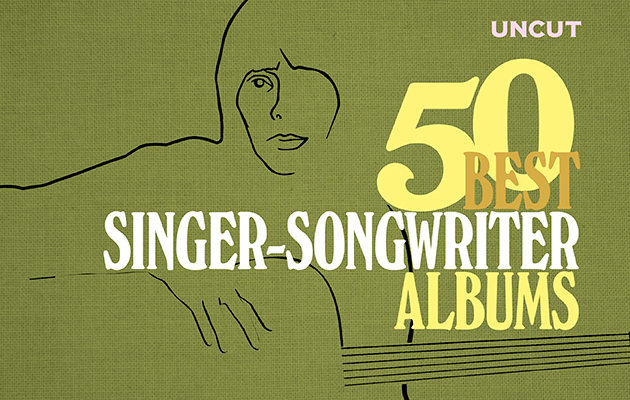Back in our December 2013 issue (Take 199), the Uncut team took on the emotional task of compiling a Top 50 of the most powerful, confessional singer-songwriter albums. From Tim Hardin 1 to Once I Was An Eagle (in chronological order, that is)… are you ready to be heartbroken?
________________________
1 Tim Hardin
Tim Hardin 1
(Verve Forecast, 1966)
Either courageously or compulsively, the gifted but tormented Hardin held up a mirror to his psyche in a series of revealing songs on his first album. “Reason To Believe”, “How Can We Hang On To A Dream?” and “Misty Roses”, addressed to Susan Morss, the muse of many of his best songs, expose Hardin’s startling vulnerability. In “Reason…”, he confronts her, shattered by alleged betrayal (“Knowing that you lied, straight-faced while I cried”) before admitting he still “look[s] to find a reason to believe” in the romantic ideal she’s ruined for him. And lurking behind the near-whispered tenderness of “Misty Roses” is a suffocating possessiveness (“Too soft to touch/But too lovely to leave alone”).
____________________________
2 Leonard Cohen
Songs Of Leonard Cohen
(Columbia, 1967)
A key album for any singer-songwriter intent on turning real life experiences into song, Cohen’s debut is scattered with names, places and events explicitly drawn from his first 33 years. “Suzanne” recalls his ritualistic – and platonic – meetings in Montreal with Suzanne Verdal, while the titular woman of “So Long, Marianne” is Marianne Jensen, his lover and muse for much of the ’60s. “Sisters Of Mercy”, which dramatises a night spent with two women in an Edmonton hotel room, is the first of countless Cohen songs seeking spiritual salvation from a sensual encounter. His songs turned inward to much darker effect on Songs Of Love And Hate, but his debut album set the standard.
____________________________
3 Laura Nyro
New York Tendaberry
(Columbia, 1969)
Nyro’s previous album, Eli And The Thirteenth Confession, provided rich pickings for other artists looking for hit singles (The 5th Dimension’s “Stoned Soul Picnic”, Three Dog Night’s “Eli’s Coming”) but there weren’t as many takers for this starker, more personal set. A devastating account of emotional turmoil, the album reflects her own experiences in New York. “You Don’t Love Me When I Cry”, “The Man Who Sends Me Home” and “Sweet Lovin’ Baby” are first-person confessionals. In other songs, the New York streets, buildings and people provide a backdrop to her innermost thoughts (“Gibsom Street”, “Mercy On Broadway”, the latter sampling the sound of gunfire).
____________________________
4 Al Stewart
Love Chronicles
(CBS, 1969)
https://www.youtube.com/watch?v=DghqCKnZG9c
Stewart’s second album is often name-checked as the first time the word “fuck” appeared in a pop song, and is also notable for the calibre of its session players (Jimmy Page, Richard Thompson and others from Fairport Convention). The centrepiece, though, is the 18-minute title track, a frequently uncomfortable autobiography in which he catalogues the highs and lows of his romantic endeavours; losing his virginity in a Bournemouth park, encounters with groupies, searching for ’60s permissiveness (“beer cans and parties, debs and arties…”), bouts of self-loathing, and ultimately finding true love in the last three verses. “You Should Have Listened To Al” picks over the bones of another doomed affair, but in a lighter, wittier tone (“she left me the keys and a dozen LPs”).
____________________________
5 Dory Previn
On My Way To Where
(Mediarts/United Artists, 1970)
Dory Previn had more cause for confession than most. Raised in a strict Roman Catholic household by an alcoholic mother and violent father, the collapse of her marriage to composer-conductor André Previn led to mental breakdown, electro-shock therapy and an intensive bout of self-analysis. All of which provided the raw ammunition for solo debut, On My Way To Where. The most striking song was “Beware Of Young Girls”, a fragrant lullaby with lyrics that served as a bitter swipe at actress Mia Farrow, with whom her husband had begun an affair two years previously. Meanwhile, “With My Daddy In The Attic” and “I Ain’t His Child” were disturbing pieces of barely veiled autobiography.



